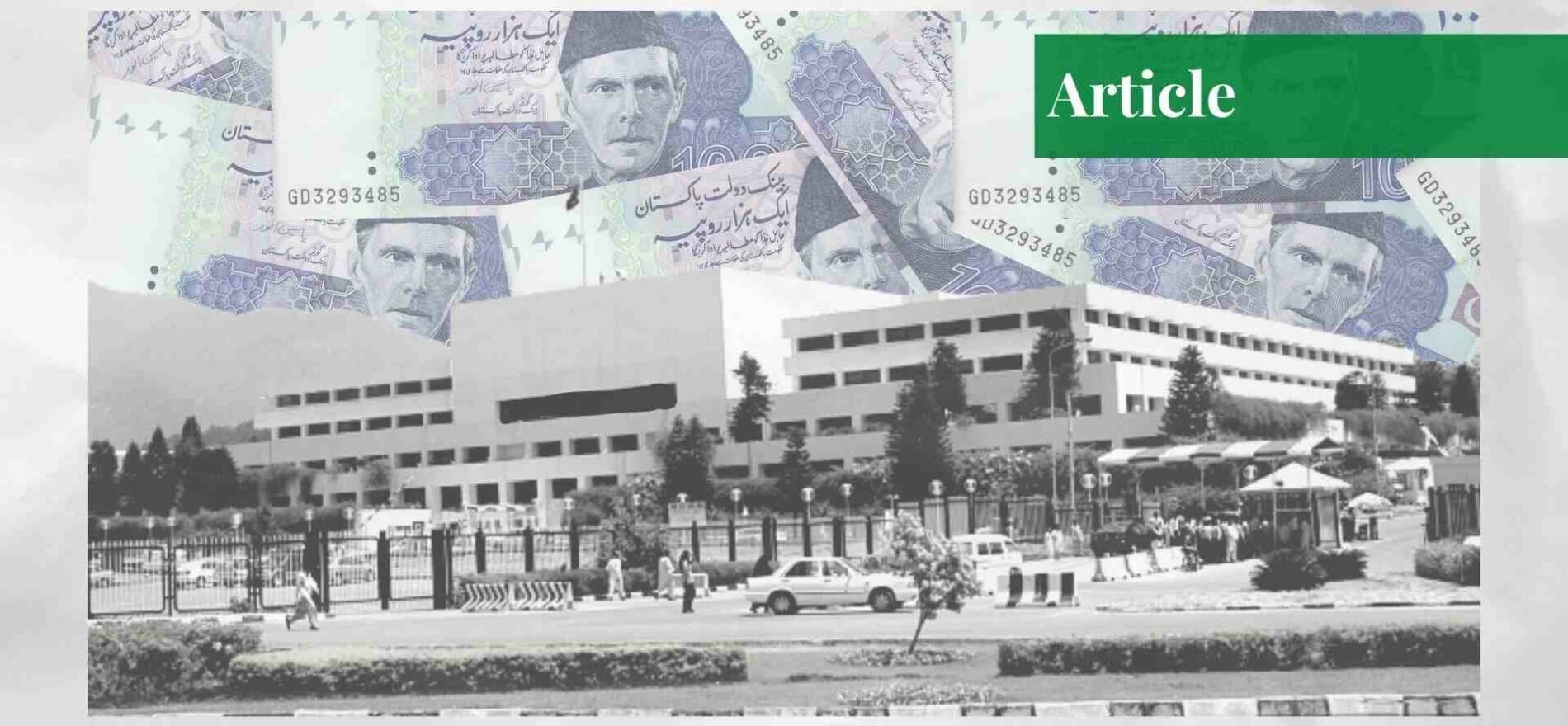The Evolution of Budgeting: From Robert Walpole to Today
Budgeting continues to be a fundamental component of financial administration worldwide. The idea traces its origin back to 1733 when Robert Walpole, Britain’s Prime Minister and Chancellor of the Exchequer, opened his bag in the House of Commons to take out and describe his proposals on taxation. Today, centuries later, almost all countries devise a budget that illustrates their estimated revenues and expenditures for the subsequent financial year.
In Pakistan, the Federal Government is required to devise and approve its budget from the parliament before its financial year kicks off on 1st July. Recently, the coalition government in Pakistan introduced the 2023-24 federal budget. Every year, with the introduction of the federal budget, the debate on why there is a need to reform the budget process in Pakistan resurfaces.
The significance of the federal budget in Pakistan has enhanced over the past few years, owing to the country’s crumbling economic situation. Clearly, reforms in Pakistan’s budget-making have become a need of the hour – specifically in the current situation where Pakistan is already struggling for finances.
How Pakistan’s Federal Budget Process Starts
The budget process in Pakistan is initiated when the Ministry of Finance issues a ‘Budget Call Circular’ to all federal ministries, divisions, and provincial governments. The ministries then devise proposals highlighting their expected revenues and expenditures. This is sent back to the Ministry of Finance who then conducts a detailed scrutiny of their proposal. It reviews and assesses the feasibility and alignment of the proposals with the government’s overall fiscal policy and development goals for the year.
After the budget has been finalized, it is presented before the federal cabinet. The cabinet then reviews, discusses, and if required, makes necessary adjustments before giving their final approval. The budget is approved by the cabinet usually in the month of May. In June, the budget is introduced to the National Assembly for legislative purposes. Parliamentarians engage in discussions and debates concerning the budget before it is approved.

Finally, the budget is sent as a ‘schedule of authorized expenditure’ (SAE) to the President of Pakistan for his final assent. This marks the completion of the federal budget process in Pakistan. It is clear that in Pakistan, like in any other country, budget-making is a crucial process because it involves not only the expected revenues and expenditures of the government for the upcoming year but also highlights the areas where the government plans to allocate its resources.
Article 84: Empowering The Federal Government
The budget document also reveals the economic priorities of the government. For this purpose, it is high time that the federal budget process in Pakistan is reformed to make it more transparent and efficient. The constitution of Pakistan mentions the provisions regarding the finances of the government in part 3, chapter 2 – which focuses on the role of Majlis-e-Shoora (Parliament). Article 84 sheds light on supplementary and excess grants by the federal government.
According to analysts, article 84 has given the federal government the right to give supplementary grants without prior approval from the parliament. This article needs to be amended because huge sums of money are given as supplementary grants to different departments without proper scrutiny by the legislature.
To quote an example, in May 2023, the federal government allocated Rs.11 billion in supplementary grants including additional funds of Rs. 1 billion before the next general elections to parliamentarians. Out of the total Rs.11 billion, Rs.550 million was given to the Ministry of Information and Broadcasting for the publicity of the federal government.
Parliamentary Committees
The role of the parliamentary committees also becomes extremely crucial. Unfortunately, the committees play a very trivial role throughout the budget-making process in Pakistan. The reason why committees, specifically the committee on finance and revenue are significant is that these committees contain members who are experts in finance and economics.
Hence, they are in a better position to oversee and scrutinize the budget, highlight the loopholes, and give better recommendations to make the overall process of budgeting more transparent.
Parliamentarians
Apart from committees, another stakeholder that ends up playing a very insignificant role is the parliamentarians despite the fact that they are the actual representatives of the people. Apart from the Finance Minister, most of the ministers are unaware of the technicalities associated with the budget. Even the cabinet members, who are to take the collective responsibility for government decisions, often have a limited understanding of the budget till it is formally presented in the parliament.

Since parliamentarians are supposed to have a deeper understanding of the problems, issues, and the needs of people in their constituency, they are often quick to highlight the potential growth sectors. They can also help identify the key avenues where resources are needed and also those areas which can yield higher returns on investment. Doing so leads to targeted investments and can eventually stimulate economic growth.
Process of Budget in India and South Korea
As mentioned earlier, the federal budget is usually presented in the National Assembly in the first week of June and it is the same month in which the National Assembly is supposed to approve it. This makes the time allocated to budgetary discussions in the parliament inadequate. According to statistics, the average discussion time in Pakistan ranges from 10-17 days, whereas in India this discussion time is approximately 75 days.
It is no doubt that understanding the budget is indeed a complex task that might require plenty of time. Hence, it often becomes extremely difficult for parliamentarians to understand the facts, figures, and other technicalities in such a short time span. It is significant to mention the example of South Korea here.
Since the early 2000s, South Korea has been trying to make its budgeting process more inclusive. For this purpose, the parliamentarians in South Korea now invite members from the general public to participate in the budget formulation through discussions. These people include researchers, teachers, and other experts. A similar method can be opted for in Pakistan where both parliamentarians and other members of the civil society can hold debates and can discuss the budget as a whole.
Recommendations
Undoubtedly, to positively transform Pakistan’s economy, it is important to introduce and then effectively implement key reforms in the budget-making process. An amendment in Article 84 of the constitution will enhance parliamentary oversight of the budget. The authority and mandate of parliamentary committees must also be strengthened. Parliamentary Committees may begin by scrutinizing the budget proposals and then if they feel the need, they can make informed recommendations for resource allocation.
Furthermore, increasing the discussion time in parliament is also vital. It will provide an opportunity for proper understanding and an in-depth analysis of the budget. It is essential for policymakers and stakeholders to prioritize these reforms and work collectively towards building a more robust and efficient budgetary framework. If these reforms are implemented, there is a high probability that it will help Pakistan would unlock its economic potential and pave the way for a prosperous future in the years to come.
If you want to submit your articles, research papers, and book reviews, please check the Submissions page.
The views and opinions expressed in this article/paper are the author’s own and do not necessarily reflect the editorial position of Paradigm Shift.



















